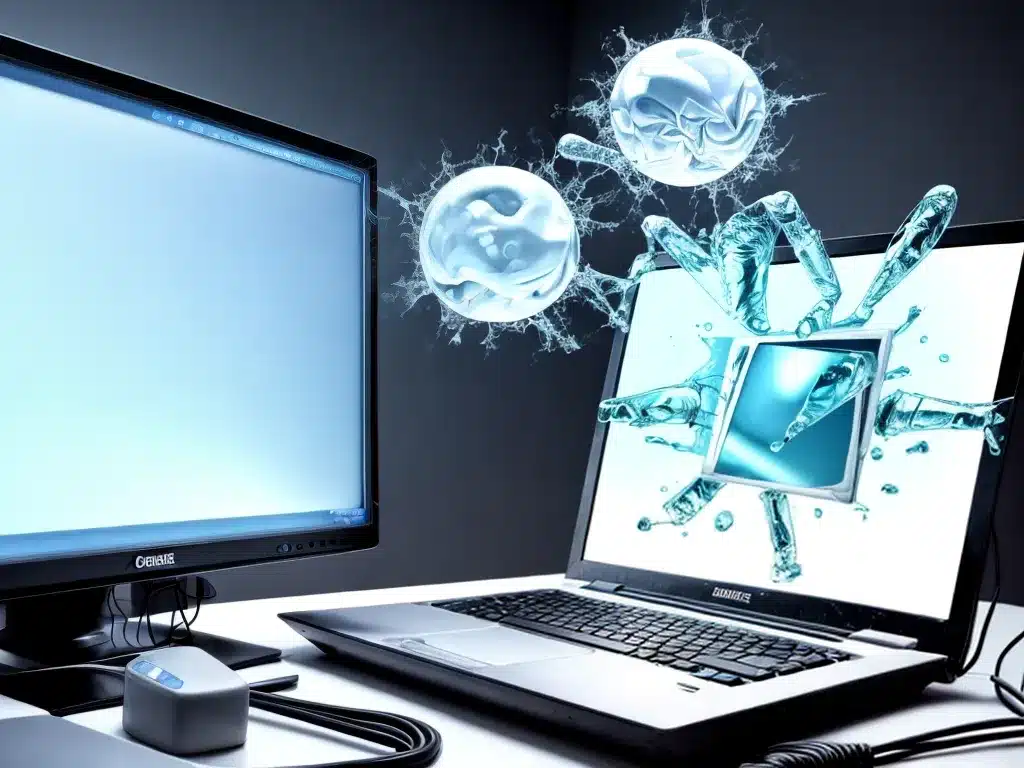
Having a computer that freezes frequently can be extremely frustrating. A frozen computer prevents you from getting work done and can lead to lost data. However, there are several potential causes of a freezing computer and solutions you can try to fix the problem.
Common Causes of Freezing
There are a few common culprits that can cause your computer to freeze up:
Software Issues
Problematic software is one of the most frequent causes of computer freezes. Things like:
-
Corrupted system files – Important operating system files become corrupted.
-
Faulty drivers – Device drivers have bugs or conflicts.
-
Too many programs running – Opening too many apps taxes your PC’s resources.
-
Malware infection – Viruses, spyware, and other malware disrupt normal function.
Hardware Problems
Hardware issues like these can also lead to freeze-ups:
-
Overheating – Dust buildup causes components like the CPU or GPU to overheat.
-
Failing hard drive – A malfunctioning hard drive struggles to load data.
-
Insufficient RAM – Having too little RAM strains your system when multitasking.
-
Faulty components – Defective hardware like bad memory sticks causes crashes.
Power Delivery Issues
Problems with power delivery can cause temporary or intermittent freezes:
-
Loose cable connections – A loose power cable or data cable cuts out temporarily.
-
Failing power supply – An aging PSU can’t deliver stable power under load.
-
Battery issues – Laptops may freeze if the battery is faulty or loose.
Troubleshooting and Fixes
With some targeted troubleshooting, you can likely uncover the cause and fix your freezing computer. Try these approaches:
Update Software and Drivers
Updating to the latest versions can resolve bugs that induce freezes:
- Update Windows, apps, and utility software to eliminate conflicts.
- Update device drivers, especially for key components like graphics cards.
- Update BIOS firmware to the newest release from your motherboard vendor.
Check for Malware
Run a full system scan with updated antivirus software to remove any malware:
- Malware and spyware programs can overload resources and freeze your PC.
- Rootkits are difficult to detect but can cause system instability.
Monitor System Resources
Use Task Manager to view real-time CPU, memory, and disk usage:
- Spikes may indicate an app or process hogging resources, causing freezes.
- Look for processes using excessive CPU time for troubleshooting.
Test Hardware Components
Stress test components like CPU, RAM, GPU to isolate faulty hardware:
- Test RAM with MemTest86 to identify errors or defects.
- Monitor temperatures with software like Speccy to check for overheating issues.
- Swap in known working components like RAM sticks or hard drives to test.
Clean Computering and Reseat Components
- Open the case and use compressed air to clear out dust buildup.
- Reseat components like RAM, expansion cards, and cables to fix loose connections.
Back Up and Reset OS
For stubborn or complex freezes, it may help to reset Windows:
- Back up data and perform a clean reinstall of your OS for a fresh start.
- Refresh or reset Windows while keeping personal files and apps.
With some targeted troubleshooting and process of elimination, you should be able to resolve computer freezes in many cases. But for repeated or unresolved issues, enlisting professional PC repair may be necessary to correctly diagnose and fix the underlying problem.












